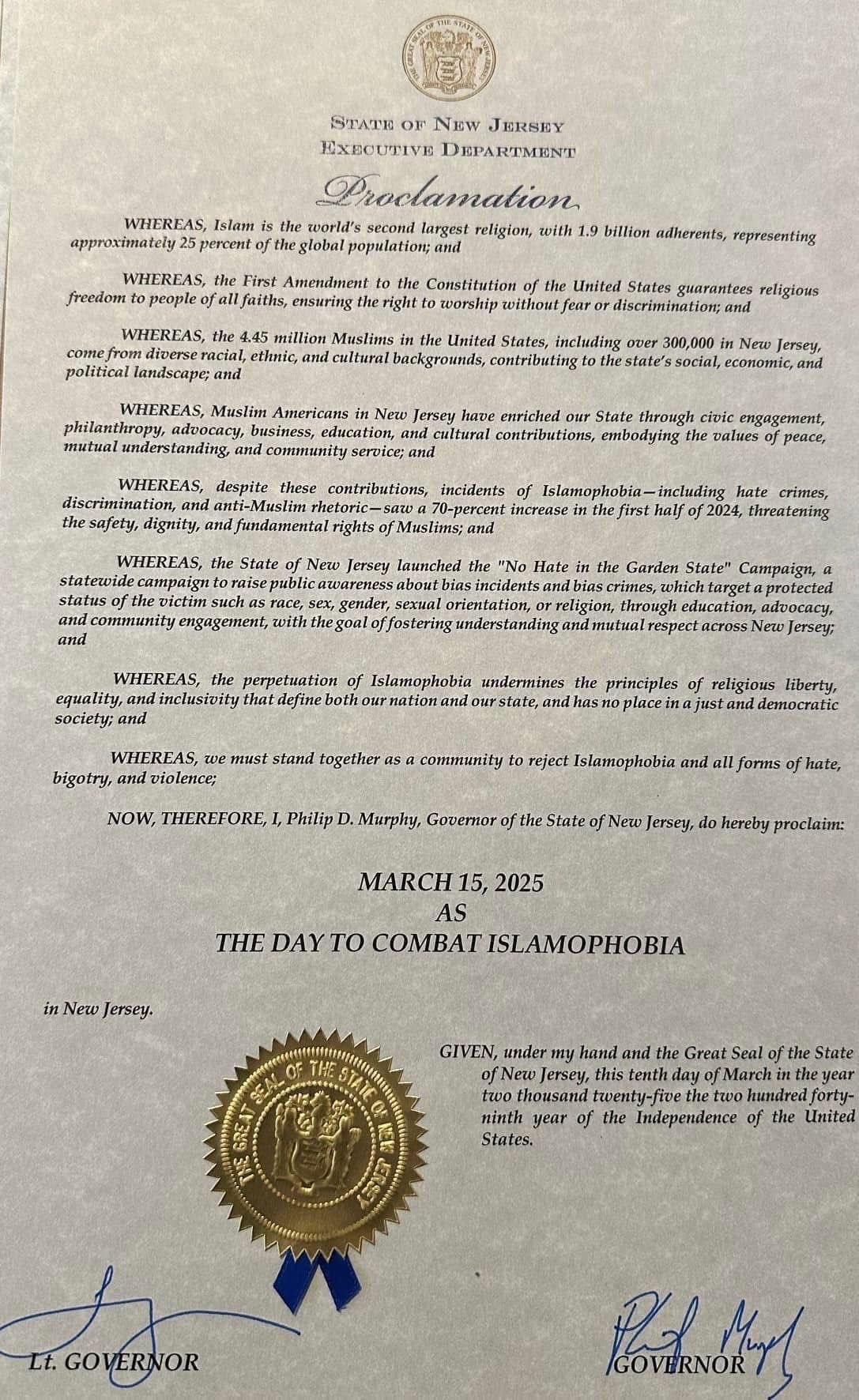Certainly, there is a first for everything. Phillip D. Murphy , Governor of the State of New Jersey proclaimed On March 15, 2025, as the Day to Combat Islamophobia. A bill was adopted whereby New Jersey became the first state ever in the nation to define Islamophobia.
The definition covers various forms of anti-Muslim sentiment and discrimination, including hatred, hostility, stereotyping, and exclusion of Muslims. What this entails is the Public officials and law enforcement are required to understand this definition when investigating and determining whether an act was motivated by Islamophobia. The bill aims to increase an understanding and address the growing problem of Islamophobia.

This bill came about due to the significant rise in incidents of Islamophobia since 2001 regarding attacks on Muslims or those perceived to be Muslims.
From 2014 to 2019, there were 10,015 anti-Muslim bias incidents, which included 1,164 anti-Muslim hate crimes. This rise in Islamophobic sentiment is widely acknowledged by the American people, as a 2019 study by Pew found that most American adults (82%) say that Muslims are subject to at least some discrimination in the United States today. According to the FBI, approximately 19% of religion-based incidents from 2015-2019 were against Muslims, who make up only about 1% of the United States population. The United States Attorney General has commented that since September 11, 2001, the Justice Department has led more than 1,000 investigations into “anti-Muslim hatred” acts and behavior that have led to more than 45 prosecutions.
Islamopobia was a terminology and concept that originated earlier in the French, islamophobie which was used as early as 1910 in a thesis by Alain Quellien to describe prejudice against Islam that was prevalent among Western and Christian societies. What is more, the term appeared in the 1918 French biography of Prophet Muhammad by Alphonse Étienne Dinet and Sliman ben Ibrahim, though it was not translated as “Islamophobia” in the English version at that time. Rather, the term became widely used in English by the Runnymede Trust in 1997. Thereafter, Islamophobia has become more commonly used in the public and academic domains to identify discrimination directed towards Muslims.
Discrimination and harassment has increased so much so towards Muslims in the West that the term Islamophobia has finally been acknowledged by the state and law led by the state of New Jersey. This is indicative of the necessity for other states and nations to follow suit to protect their citizens. When Muslims and those of other faiths are no longer harassed due to the misconceptions and biases that surround them, then no longer will there be a need to enforce these bills. This can only happen through education. The bill is the first step towards awareness, and action against injustice towards a minority group.









